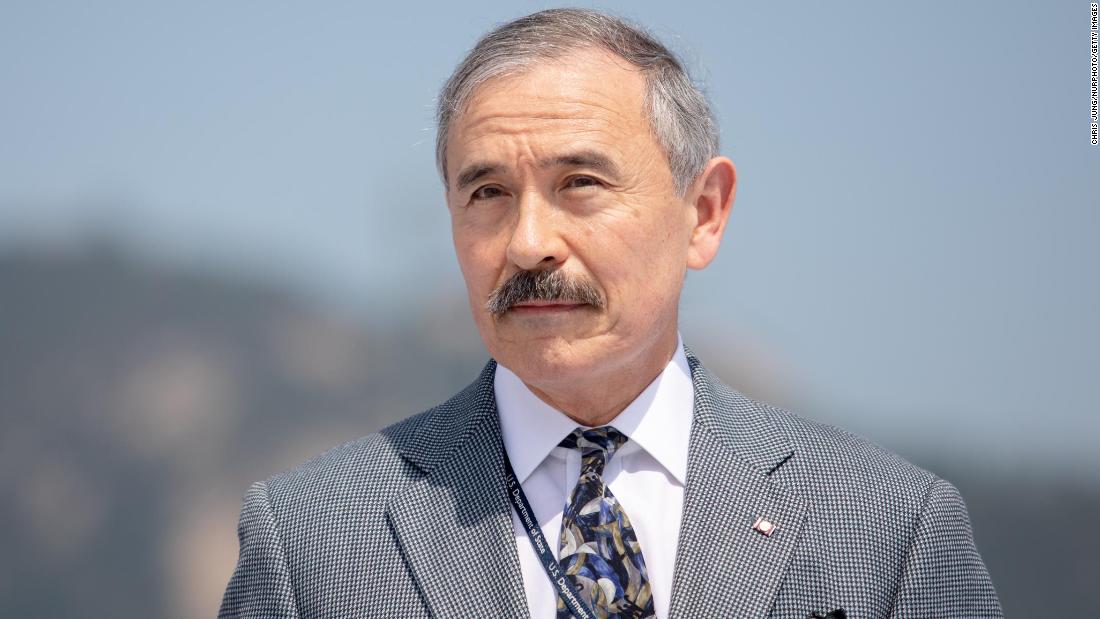
“With the help of his senior advisor @sykimsy, @USAmbROK Harris visited a classic local barber shop to get a little ‘cooler’ during the hot summer months,” the post reads.
In the video, Harris complains about the recent weather in Seoul before sitting down to shave his mustache by barber Mr. Oh.
Harris later wrote a post-shave message on his own Twitter account.
Masking, testing, and contact tracing have been important parts of South Korea’s widely praised coronavirus response.
So far, the country has recorded just over 14,000 cases and 299 deaths, according to figures from Johns Hopkins University.
Harris has been a U.S. ambassador to South Korea since July 2018, and his facial hair previously drew bizarre criticism from a small section of society.
In January, Harris told reporters that his mustache “for some reason became a point of fascination here in the media” after he was subjected to a hot vitriol online.
The gist of the criticism was that with his mustache, Harris resembled the vilified Japanese leaders who ruled the Korean peninsula with an iron fist during the Japanese occupation from 1910 to 1945.
Some of Japan’s most prominent war leaders, including Emperor Hirohito and Hideki Tojo, the prime minister who was later executed by a post-war court, had mustaches.
Under Japanese rule, many Koreans were brutalized, killed, and enslaved. It is within the living memory of older Koreans and remains a highly emotional subject in both North and South Korea. In recent years, problems related to Japanese reparations for their behavior in Korea have become a point of discussion between Japan and South Korea.
Another problem is that South Korea is a homogeneous society where mixed-race families are rare and xenophobia is still common.
Harris was born in Japan to a Japanese mother and an American father, who was a Navy officer, and some online commentators have pointed to Harris’ heritage along with the mustache in his criticism.
But Harris is not Japanese, he is a US citizen. And calling him by his Japanese descent would surely be considered racist in the United States.
“I understand the historical animosity that exists between the two countries, but I am not the Japanese-American ambassador to Korea, I am the American ambassador to Korea,” Harris said in an interview with the Korea Times in December.
“And taking that story and putting it on simply because of a birth accident, I think it’s a mistake.”
CNN’s Joshua Berlinger contributed to this report.
.